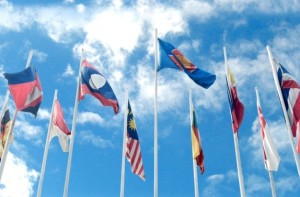
The ASEAN Business and Advisory Council (ASEAN-BAC) told leaders at the recent 26th ASEAN Summit they wish to see the setting up of a regional bank and elimination of non-tariff barriers before the AEC’s formal kick-off in November.
The council also pushed for deeper integration of the financial sector and further initiatives to liberalize professional services, said the council’s chairman Tan Sri Dr. Mohd Munir Abdul Majid.
“Our recommendations covered short-term measures that ASEAN could implement between now and the official launching of the AEC in November,” he said in a report by Bernama, Malaysia’s national news agency.
He said the regional bank would improve financial access for micro-, small-, and medium-sized enterprises (MSMEs). The regional MSME bank, to be run on a commercial basis, requires recognition to ensure it meets cross-border collateral requirements.
“The bank will not only provide conventional financial facilities, but be active in making investment banking initiatives, including the issuance of debt and equity instruments, providing funds and private equity or private debt,” Munir said.
On priority integration sectors, he said policymakers should give greater attention to electronic transactions through e-ASEAN and healthcare, as well as to wood-, rubber- and agro-based products, textiles and apparel, fisheries, air travel and tourism, and automotive products.
“Aviation and logistics require more attention to ensure efficient, seamless and financially feasible movement of goods and passengers. The establishment of regional air traffic controllers along with pilot training centers helps the sector’s viability and competitiveness,” he said.
For the longer term, specifically in the ASEAN’s post-2015 era, Munir said the council recommends establishing a mutually recognized legal infrastructure that will focus on emerging issues and economic enablers for the continued success of the regional bloc.
“We recommend taking the first few very necessary steps to introduce and establish an ASEAN Arbitration Centre as well as an ASEAN Registry. One is to serve as a point of reference or assistance regarding standardized governing arbitration matters. The other would serve as a repository of information on companies operating regionally,” he explained.









